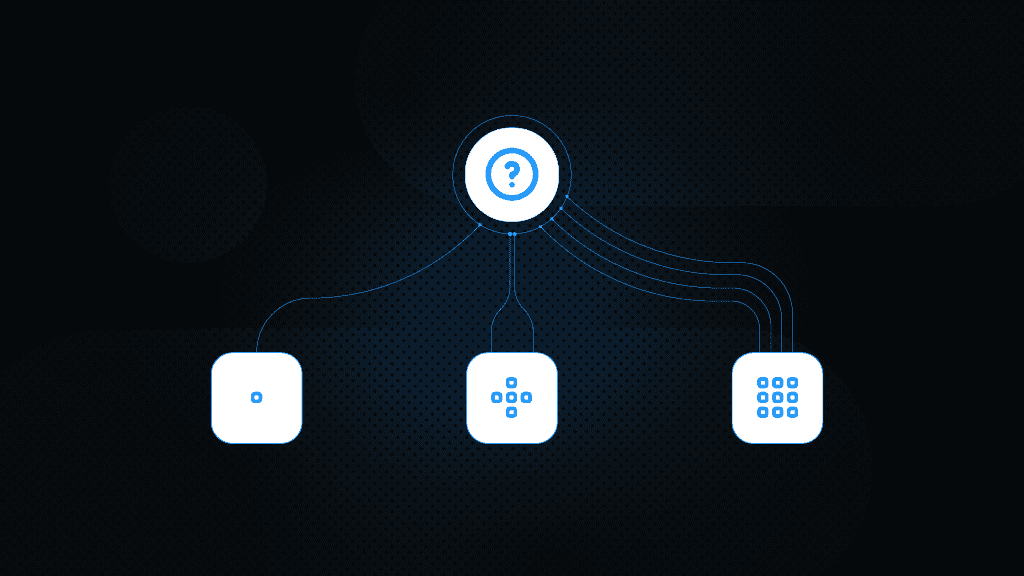How Many Proxies Per Task: Find the Perfect Balance
Did you know that a single internet user generates an average of 2.5GB of data per day? With the exponential growth of online activities, businesses and individuals alike are faced with the challenge of managing an enormous amount of web tasks efficiently.
One solution that has emerged to tackle this issue is the use of proxies. Knowing the number of proxies per task plays a crucial role in task management.
Optimal number of proxies per task you need
The golden rule is to maintain a 1:1 ratio, meaning you use one proxy for each task. For example, if you need to complete 1K tasks, you’ll require 1K proxies.
The number of proxies needed depends on several factors, including:
- The scale of tasks.
- Their geographical distribution.
- The type of proxies used.
When managing tasks, consider the scale – large projects require more proxies to handle the load effectively. Geographical distribution is also vital; proxies in different locations can bypass geo-restrictions and ensure smooth operations globally.
For instance, if your tasks include web scraping across various regions, having proxies in those regions can enhance the success rate and speed of your operations.
- Task scale. More tasks mean more proxies for effective load distribution.
- Geographical needs. Use proxies from various regions to bypass geo-restrictions.
- Proxy type. Choose between shared proxies and private proxies based on your security and performance needs.
By evaluating these factors and performing regular monitoring, you can adjust the number of proxies to ensure optimal performance and cost-effectiveness.
The importance of proxies in task management
Proxies are vital in task management for several reasons:
- Bypass restrictions and access blocked content. They allow access to blocked websites around the globe.
- Load distribution for multiple tasks. Proxies help distribute the load of multiple tasks by allowing users to assign different proxies for each task.
- Data scraping and anonymity. IPs enable users to scrape data from websites without being detected or blocked. Users can enhance their online activities while maintaining their anonymity and privacy.
- Cybersecurity protection. Proxies act as a barrier between users and potentially harmful content. They can filter out malicious traffic, block suspicious websites, and prevent cyber attacks, safeguarding users' devices and sensitive information.
- Essential layer of protection. This added layer of protection is crucial as online threats continue to evolve and pose risks to individuals and organizations alike.
Different types of proxies and their usage
Proxies come in various types, each with its own advantages and use cases. Understanding these types can help you choose the right proxies for your specific needs.
Shared proxies and their benefits
Shared proxies are a popular choice for individuals looking to mask their IP addresses and access geo-restricted content. By sharing the same proxy server with other users, the cost is more economical.
However, it's important to note that shared proxies may not be suitable for activities that require a high level of anonymity or security, as the actions of other users on the same server can impact your browsing experience.
Private proxies and their advantages
Private proxies offer exclusive access to a dedicated server, providing users with a higher level of privacy and security. Since these proxies aren’t shared with others, the risk of IP address blacklisting or performance issues due to overcrowding is significantly reduced.
This makes private proxies a preferred choice for businesses that rely on data-intensive tasks or require consistent and reliable connections for their operations.
Common mistakes in proxy allocation
While proxies are incredibly useful, there are common mistakes that users often make when allocating proxies.
Overloading proxies: the risks
One common mistake is overloading proxies by assigning too many tasks to a single proxy. Overloading can lead to:
- Slower speeds
- Increased latency
- Timeouts
It's crucial to distribute tasks evenly among proxies to ensure optimal performance and prevent potential risks.
Moreover, overloading proxies can also raise red flags with service providers, potentially leading to blocks or bans. By maintaining a balanced workload for each proxy, users can fly under the radar and avoid disruptions to their operations.
Underutilizing proxies: the consequences
On the flip side, underutilizing proxies can be wasteful and costly. Having too many proxies for a small number of tasks not only increases expenses but also hinders performance optimization. Carefully assess the number of tasks and proxies needed to strike the right balance between productivity and cost-effectiveness.
Underutilized proxies can also result in missed opportunities for scaling operations. By efficiently utilizing proxies, users can leverage their full potential and expand their reach without unnecessary expenditures.
Best practices for proxy management
Now, let's delve into some best practices to make the most of your proxy management.
Regularly monitoring proxy performance
To ensure optimal performance, it's essential to monitor the performance of your proxies regularly. Keep an eye on factors such as:
- Speed
- Reliability
- Latency
If you notice any issues, adjust the allocation of tasks or consider upgrading to a bigger plan.
Additionally, consider implementing automated monitoring tools that can provide real-time insights into your proxy performance. These tools can help you identify potential bottlenecks or issues before they impact your operations, allowing for proactive adjustments and optimizations.
Maintaining proxy security and privacy
When implementing proxies, it's crucial to prioritize security and privacy.
- Choose reputable proxy providers that offer secure connections and reliable data protection.
- Consider implementing encryption protocols such as SSL or TLS to enhance the security of your proxy connections.
By encrypting the data transmitted between your device and the proxy server, you can mitigate the risk of interception or unauthorized access, safeguarding sensitive information and maintaining privacy.
Optimize your task management with the right proxies
Proxies are essential for enhancing online security, privacy, and task efficiency. Understanding how many proxies you need and choosing the right type can significantly impact your operations.
Whether you're managing small-scale projects or large-scale tasks, proper proxy allocation is key. Explore the advantages of using proxies and streamline your task management effectively.
About the author

Vilius Sakutis
Head of Partnerships
Vilius leads performance marketing initiatives with expertize rooted in affiliates and SaaS marketing strategies. Armed with a Master's in International Marketing and Management, he combines academic insight with hands-on experience to drive measurable results in digital marketing campaigns.
Connect with Vilius via LinkedIn
All information on Smartproxy Blog is provided on an as is basis and for informational purposes only. We make no representation and disclaim all liability with respect to your use of any information contained on Smartproxy Blog or any third-party websites that may belinked therein.





